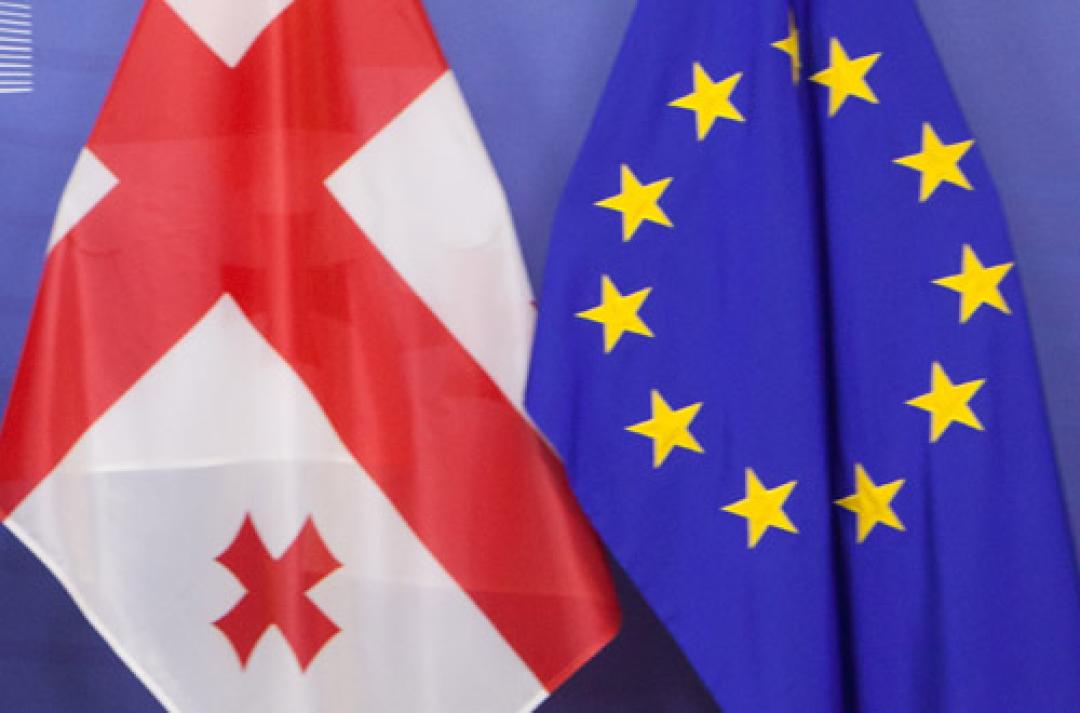
Political crisis in Georgia: EU appoints mediators; Prosecutor office launches investigation into ruling party conversation recordings

On 9 March, the President of the EU Council Charles Michel tasked his personal representative Christian Danielsson to relaunch the dialogue among Georgia’s political parties.
“Mr. Danielsson will mediate the relaunched dialogue among Georgia’s political parties, working closely with the Ambassador of the European Union to Georgia, Carl Hartzell, with the aim to overcome the current political tensions in Georgia. President Michel and High Representative Borrell encourage all political actors in Georgia to commit fully to the dialogue in a constructive spirit and with a view to pursuing mutually agreeable outcomes, in the interest of a stable, democratic, and reform-oriented Georgia, able to successfully advance on its pro-European path,” Michel’s statement underscored.
The chairperson of the ruling Georgian Dream party (GD) Mamuka Mdinaradze stated a day earlier that he expected talks between the government and the opposition to continue, despite the release of a recording allegedly involving violations by state officials on 6 March. “We still believe we will be able to reach a compromise, because when two sides enter talks they have to present offers for compromise. This concerns not only the opposition but us too. No matter how much some might try to use recordings obtained by the Department of Constitutional Security under the United National Movement government in 2010-2011 and subsequently edited ... to use it as grounds to exit the talks, we will return to the discussion table over the next few days,” he stated.
Speaking on the recordings, the country’s Prosecutor office launched an investigation into the alleged wiretap of a conversation between Georgian Prime Minister Irakli Garibashvili, the son of the Georgian Dream founder Bidzina Ivanishvili, Bera Ivanishvili, and the Head of the Special State Protection Service Anzor Chubinidze. The GD argued that the recordings were a fabrication of illegal recordings made in 2010-2011 and the “fake conversations” consist of words and phrases taken from dozens of recordings that covered a period of at least a few months.
Meanwhile, the Movement for Georgia initiated the “Come Out for Dignity” rally on 9 March. Activists gathered in front of the government administration building to protest the content of the leaked secret audio recording, demanding that those who appear in the audio recording must be punished and that the authenticity of the records must be established. Protesters are also demanding the resignation of the Prime Minister of Georgia, Irakli Garibashvili. The dissatisfaction of those gathered with the administration was caused by the statement of the prosecutor’s office, according to which the investigation was launched only on obtaining and distributing secret records.
It should also be noted that member of the Georgian Parliament and a former leader of the European Georgia opposition party Elene Khoshtaria created a new political force Droa which aims to expose corrupt officials, abusers, thieves-in-law and those involved in nepotism and who have ties to Russia. “State propaganda is constantly trying to convince us that corruption, poverty, hopelessness and occupation are our natural state and destiny. Of course, this is not true, and we need to change this with our efforts, consistency and clear plan. It is time to show the government that we see what is happening and we will not tolerate it. I expose corrupt officials, abusers, swindlers, thieves, clan members, nepotists, allied with Russia and all kinds of injustices, I expose, and I will not tolerate,” stated Khoshtaria.
The OSCE Office for Democratic Institutions and Human Rights (ODIHR) released its final report on the 31 October elections in the country, stating that the elections were “competitive and administered efficiently.” Noting that the electoral legal framework provided a sound basis for holding democratic elections overall, the report said that “gaps and ambiguities in the election legislation persist which, in some instances, led to an inconsistent application of the law by the election administration, courts and other relevant actors.”
The report also said that “the line between the ruling party and the state was often blurred, contrary to OSCE commitments and international good practice” which based on the report also included campaigning by mayors on behalf of candidates of the ruling party. It also noted while the Georgian Constitution prescribes the separation of church and state and the Election Code forbids campaigning by religious organisations, the ruling party invoked religious imagery in its appeal to voters in some of its campaign advertising, and some clergy of the Georgian Orthodox Church were seen at campaign events.
The OSCE recommended to the Georgian authorities to: 1) revise the legal framework in order to ensure better compliance with OSCE commitments and international standards; 2) reconsider the composition of the election administration so as to increase its impartiality and independence together with a more balanced political representation; 3) take prompt and effective steps to properly investigate allegations of voter and campaign staff intimidation in order to ensure public confidence in the electoral process; 4) simplify electoral dispute resolution; 5) clarify the vote recount and annulment criteria; 6) review the existing system for allocation of free air-time and of funds for advertising; and 7) reconsider undue restrictions on active and passive suffrage rights.
See Also


Mirzoyan Meets US Deputy Assistant Secretary Joshua Huck

Azerbaijani President Holds Talks with UAE and German Business Delegations on Economic Cooperation

Grigoryan Confirms Armenia’s Readiness to Dissolve OSCE Minsk Group Upon Peace Treaty Signing

Azerbaijani Official Warns of Ecological Risks to Caspian Sea, Similar to Lake Urmia and Aral Sea

